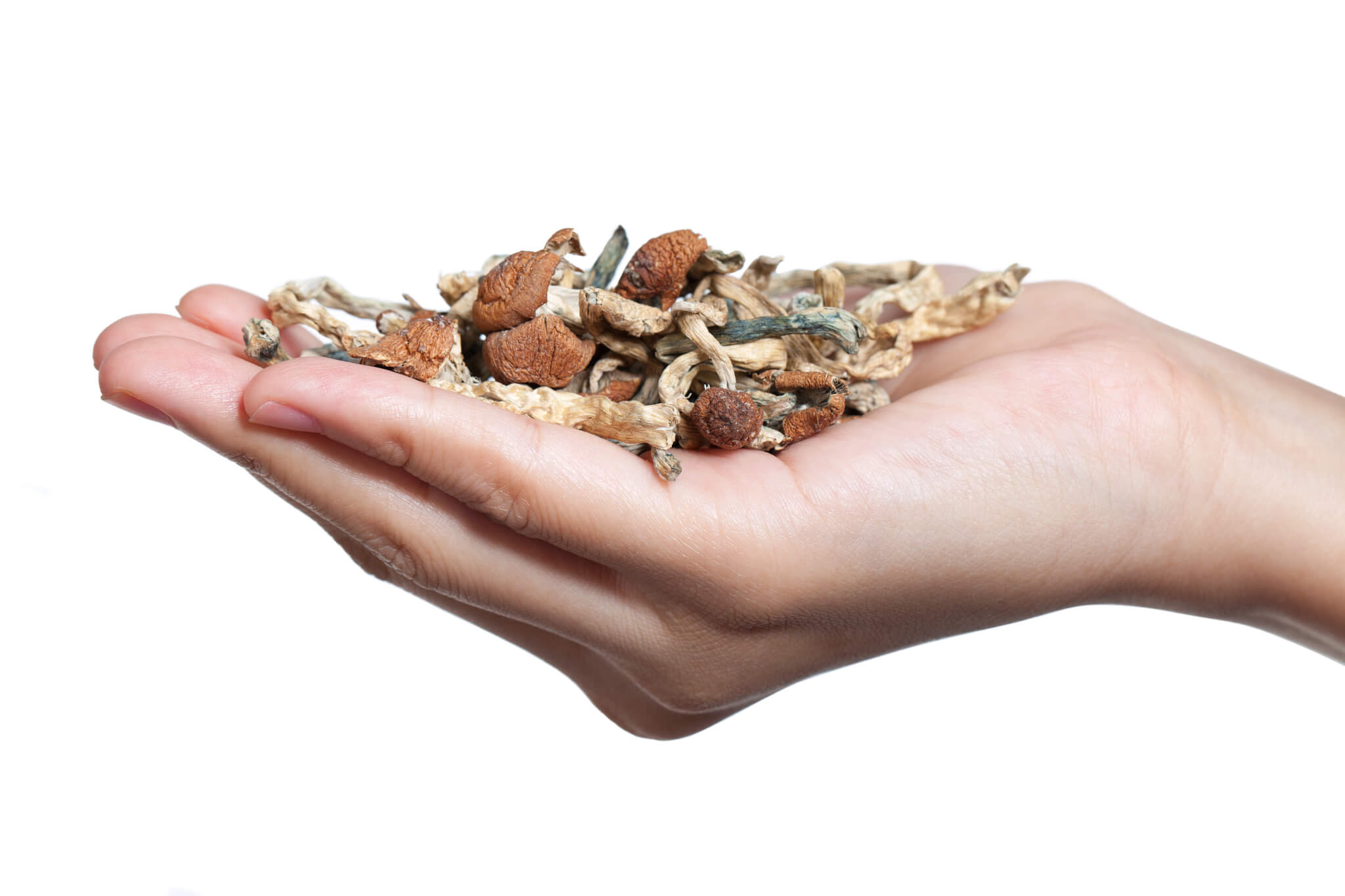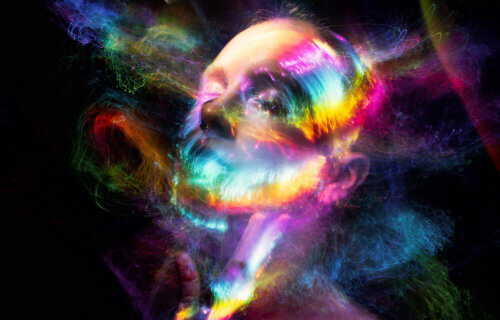COLUMBUS, Ohio — It’s a trope seen countless times in books and movies. A character emerges from a drug-induced psychedelic stupor with a fresh outlook and more positive perspective on life. According to new findings from The Ohio State University, however, there may really be some truth to this hallucinogenic notion. Scientists report particularly mystical and insightful psychedelic drug experiences may be associated with an enduring drop in both anxiety and depression symptoms.
Study authors performed a comprehensive machine learning analysis of data pertaining to nearly 1,000 survey respondents who answered questions about their previous non-clinical experiences with psychedelic drugs. Sure enough, those scoring the highest on questionnaires assessing the mystical and insightful nature of their experiences also consistently reported improvements in both depression and anxiety.
Of course, there’s also the risk of encountering a “bad trip.” What happens if a psychedelic experience becomes unpleasant, frightening, or destabilizing? Surprisingly, the study actually found that even challenging psychedelic trips can be beneficial — especially within the context of mystical and insightful experiences. This finding in particular may be especially helpful for practitioners to know as they guide patients through clinical trials focusing on the therapeutic potential of psychedelics.
“Sometimes the challenge arises because it’s an intensely mystical and insightful experience that can, in and of itself, be challenging,” says senior study author Alan Davis, assistant professor and director of the Center for Psychedelic Drug Research and Education in The Ohio State University College of Social Work, in a media release.

“In the clinical research setting, folks are doing everything they can to create a safe and supportive environment. But when challenges do come up, it’s important to better understand that challenging experiences can actually be related to positive outcomes,” he adds.
There are 3 ‘subtypes’ of psychedelic experiences
This project is the first ever to characterize subtypes of the subjective psychedelic experience, and then go on to link them with various mental health outcomes. Data used was originally collected for previous work led by Prof. Davis featuring an anonymous online survey of respondents who all reported having a moderate to strong psychedelic experience in the past, as well as subsequent changes to anxiety and depression symptoms – regardless of the level of those symptoms before the psychedelic experience.
In all, 985 participants’ responses were analyzed. Participants described drugs they had used and then completed questionnaires evaluating the extent to which their psychedelic experience was mystical (evoking a sense of pure awareness, positive mood and/or transcendence of time and space that is difficult to describe in words), psychologically insightful (eliciting acute insight into memories, emotions, relationships, behaviors or beliefs), or challenging.
As far as outcomes, researchers gauged depression and anxiety symptom levels and ratings of satisfaction with life and psychological flexibility. This is a person’s ability to act in ways that are consistent with their values regardless of whatever internal or external experience they may be having, both before and after using a psychedelic.
Drugs reported to be used by study participants included magic mushrooms (psilocybin), LSD, Ayahuasca, mescaline, peyote cactus and 5-MeO-DMT (the natural psychedelic substance in the venom of the Colorado River toad). Drug doses were estimated by subjects.
The ensuing analysis revealed three distinct subtypes of psychedelic experiences:
- High scoring, combining high scores on the mystical and insightful assessments with moderate scores on the challenging assessment.
- Low scoring, combining low to moderate scores on mystical and insightful experiences and low scores on the challenging scale.
- Positive scoring, featuring high scores for mystical and insightful experiences and low scores on the challenging assessment.
“The group that had the highest insightful and mystical experiences and low challenging experiences showed the most benefit in terms of remission of anxiety and depression symptoms and other longer lasting benefits to their life,” explains first study author Aki Nikolaidis, an affiliate of Ohio State’s Center for Psychedelic Drug Research and Education (CPDRE) and a research scientist in the Center for the Developing Brain at the Child Mind Institute.
When study authors opted to just analyze data from participants who had used psilocybin and LSD, the same patterns appeared; three subtypes associated with the same outcomes, even mental health benefits following a challenging psychedelic experience. These consistent observations highlight the importance of subjective experiences for psychedelics users, Nikolaidis posits.
“Identifying subtypes that exist regardless of which psychedelic you take answers an interesting question,” he notes. “But the fact that we found that they’re associated with specific outcomes, and replicated that finding, really shows why it’s important to understand the powerful nature of what is happening subjectively and its potential to yield a beneficial outcome.”
Stronger mind, greater purpose
A few additional trends stood out to researchers and are worth noting: The positive scoring group whose experience could be deemed optimal (high scores on mysticism and insight and low scores on challenges) were usually younger than subjects in other cohorts. Among those scoring the highest on challenging experiences, meanwhile, there was a higher proportion of people who had taken large doses of psychedelics. Also, the low scoring subtype displayed lower psychological flexibility, anxiety and depression scores before the psychedelic experience, and lower improvements in those symptoms and life satisfaction than the other two subtypes.
Prof. Davis adds that he is waiting to see if these subtypes apply in a clinical setting. Psilocybin-assisted therapy is already being studied at Ohio State for the treatment of PTSD among military veterans.
“Finding the variety of other outcomes that these subtypes might be related to is an interesting next step,” he concludes. “These could include adaptive or functional outcomes in people’s quality of life or well-being, or a better understanding of their life’s purpose or relationships.”
The study is published in the Journal of Affective Disorders.

Likely so. Finally there can be useful research as in the early 1950s instead of a Leary-type craze.
Psychedelics impair reality contact. They can make adverse future problems that need to be prepared for appear as not a problem.
Most drugs are claimed to have some therapeutic quality by users – that doesn’t mean they’re safe or healthy with no adverse side-effects or long-term consequences. Crackheads I’m sure would give their drug of choice high scores on a survey and claim it improves their mood too.
So the elite mall crowd taking ketamine what happens afterwards? Do they return to cruising the cosmetic counters in Bloomingdales? I find it hard to believe that after an intense mystical experience …..
you consider the people at the cosmetic counter at bloomingdales the elite? p.s. no one shops at bloomingdales anymore this is 2023.
The topic of this article is like a flash-back from the sixties. Let the reader beware.
My first “accidental” LSD trip at age 17 many decades ago was life-changing in a positive way. It included the mysticism, the challenge, the psychological reprogramming mentioned in the article.
I quit running around, got a job, stayed home at nights studying. The changes enabled me to be accepted at university. I worked my way through college, still taking LSD occasionally and smoking pot regularly. Later on entered a “rocket scientist” career and made a ton of money before I retired. I’ve never had a bad trip.
Legalization is meaningless. I’ve never had any hassle obtaining LSD or any drug, and I’ve never been arrested on a drug charge, even though I’ve used them for over 50 years.
Thank you, Shaginaw. I’m 72, and I dropped acid when I was 17 also. Changed my life. Deep depression gave way to resounding hope. I went from flunking school to being number one student. I’ve retired from a good career in IT, and I remain eternally grateful for LSD.
“psychedelic stupor?!” Oxymoron of the centruy.